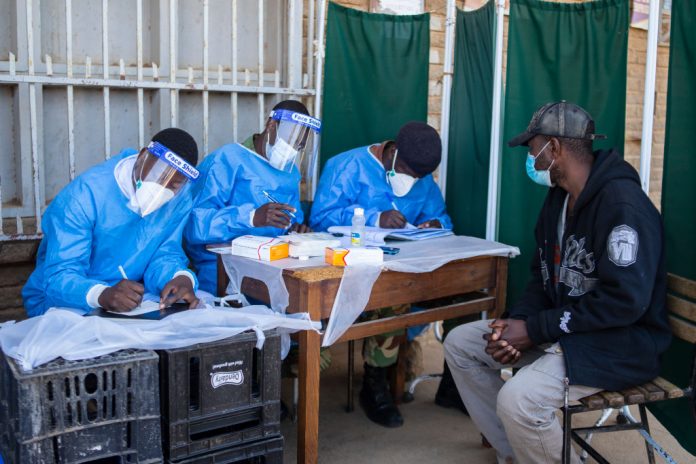By XINHUA

Zimbabwe is pinning its hope on a comprehensive vaccination program to sustain economic recovery, as tourism and education sectors remain the most battered by the COVID-19 pandemic, the country’s Finance Minister Mthuli Ncube said Wednesday.
“Our medium to long-term economic strategy is the vaccination program,” Ncube said during an international business conference at the annual Zimbabwe International Trade Fair being held in the Zimbabwean city of Bulawayo.
The pandemic has a devastating impact on the overall economy, with tourism and education among the most affected sectors, Ncube noted.
For example, tourism has seen an 80-percent drop in global air passenger traffic, a 60-percent drop in tourist arrivals, a 90-percent drop in hotel occupancies, and a drop in aviation services, he said.
Meanwhile, manufacturing, health and agriculture, to some extent, have positive externalities from the pandemic and its mitigation measures, Ncube said, adding that health, information communication technology and foodstuffs manufacturing remain resilient due to increasing demand for medical supplies, pharmaceuticals, health care services, e-learning and e-commerce.
After two years of economic recession, Zimbabwe is expecting an economic growth rate of 7.8 percent in 2021, buoyed by a successful 2020/21 agricultural season and the national vaccination program starting in February this year.
The country, which is emerging from the third wave of the pandemic, is utilizing a budget surplus of 100 million U.S. dollars from the previous year to procure vaccines, Ncube said.
“The government will continue to mobilize additional resources to ensure the target population is fully vaccinated,” he said, adding that the vaccines are mainly from China, India and Serbia.
By Saturday, Zimbabwe has managed to inoculate around 13.7 percent of its more than 14 million population with both shots of COVID-19 vaccines, reaching the September target of a 10-percent vaccination rate set by the World Health Organization.
The African country aims to inoculate at least 60 percent of its population to achieve herd immunity by the end of the year.

